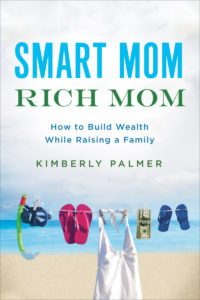 Today’s top story: 4 steps to managing your parents’ bank accounts. Also in the news: How banks boost overdrafts by counting big debits first, how to determine whether to pay down debt or save for retirement, and mistakes to avoid when choosing a financial advisor.
Today’s top story: 4 steps to managing your parents’ bank accounts. Also in the news: How banks boost overdrafts by counting big debits first, how to determine whether to pay down debt or save for retirement, and mistakes to avoid when choosing a financial advisor.
4 Steps to Managing Your Parents’ Bank Accounts
Taking the reins.
Many Banks Boost Overdrafts by Counting Big Debits First, Report Says
Putting transcations in a certain order can guarantee overdraft fees.
This Calculator Will Tell You Whether to Pay Down Debt or Save for Retirement
Which should you choose?
3 Mistakes to Avoid When Picking a Financial Advisor
Selecting the right one for your needs.
 Today’s top story: How to safely shop online. Also in the news: The top financial complaints by state, how to lower your tax bill before the end of the year, and 5 ways car ads lie to you.
Today’s top story: How to safely shop online. Also in the news: The top financial complaints by state, how to lower your tax bill before the end of the year, and 5 ways car ads lie to you.  I’m giving away a copy of Kimberly Palmer’s
I’m giving away a copy of Kimberly Palmer’s  Today’s top story: Advice from people who paid off student loans. Also in the news: How to turn a bad day into a tax break, why Austin, Texas is the best city for job seekers, and the bank account score agencies you’ve never heard of.
Today’s top story: Advice from people who paid off student loans. Also in the news: How to turn a bad day into a tax break, why Austin, Texas is the best city for job seekers, and the bank account score agencies you’ve never heard of.  Today’s top story: 7 questions and answers about the fed rate hike. Also in the news: How to avoid the Social Security tax bubble, how the fed rate hike could affect your student loans, and how not to be tricked by retailers’ “regular prices.”
Today’s top story: 7 questions and answers about the fed rate hike. Also in the news: How to avoid the Social Security tax bubble, how the fed rate hike could affect your student loans, and how not to be tricked by retailers’ “regular prices.”  It’s going to be a zoo at the stores the next couple of days, the last full weekend before Christmas (next Sunday) and Hanukkah (which starts the night before). Plus, today is the last day for ground delivery from UPS and FedEx deliveries if you want your packages to arrive by Christmas.
It’s going to be a zoo at the stores the next couple of days, the last full weekend before Christmas (next Sunday) and Hanukkah (which starts the night before). Plus, today is the last day for ground delivery from UPS and FedEx deliveries if you want your packages to arrive by Christmas.